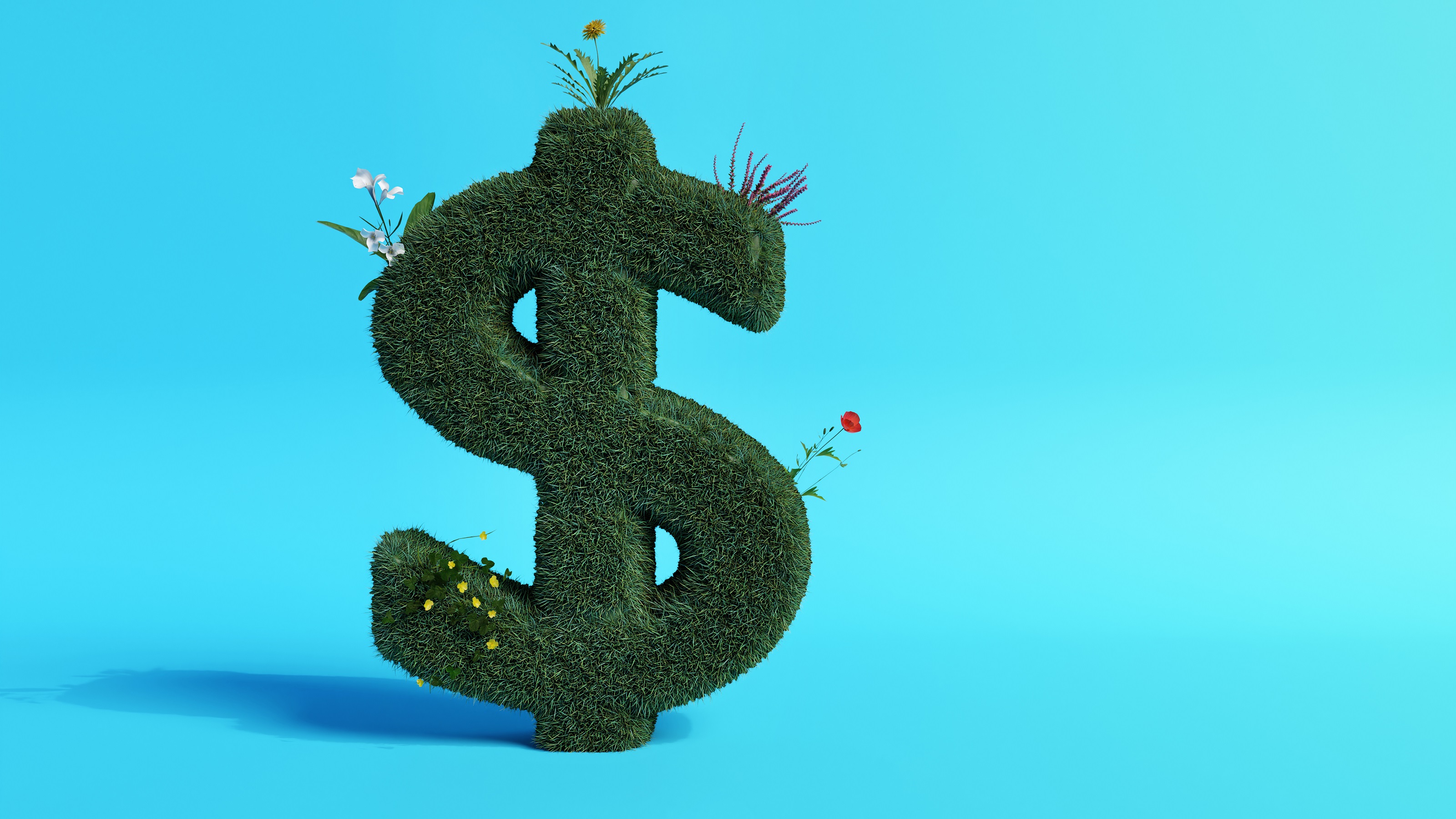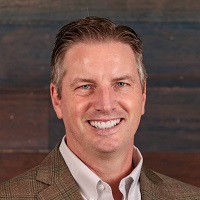SRI Redefined: Going Beyond Socially Responsible Investing
Now that climate change has progressed to a changed climate, sustainable investing needs to evolve to address new demands of resilience and innovation.


Profit and prosper with the best of Kiplinger's advice on investing, taxes, retirement, personal finance and much more. Delivered daily. Enter your email in the box and click Sign Me Up.
You are now subscribed
Your newsletter sign-up was successful
Want to add more newsletters?

Delivered daily
Kiplinger Today
Profit and prosper with the best of Kiplinger's advice on investing, taxes, retirement, personal finance and much more delivered daily. Smart money moves start here.

Sent five days a week
Kiplinger A Step Ahead
Get practical help to make better financial decisions in your everyday life, from spending to savings on top deals.

Delivered daily
Kiplinger Closing Bell
Get today's biggest financial and investing headlines delivered to your inbox every day the U.S. stock market is open.

Sent twice a week
Kiplinger Adviser Intel
Financial pros across the country share best practices and fresh tactics to preserve and grow your wealth.

Delivered weekly
Kiplinger Tax Tips
Trim your federal and state tax bills with practical tax-planning and tax-cutting strategies.

Sent twice a week
Kiplinger Retirement Tips
Your twice-a-week guide to planning and enjoying a financially secure and richly rewarding retirement

Sent bimonthly.
Kiplinger Adviser Angle
Insights for advisers, wealth managers and other financial professionals.

Sent twice a week
Kiplinger Investing Weekly
Your twice-a-week roundup of promising stocks, funds, companies and industries you should consider, ones you should avoid, and why.

Sent weekly for six weeks
Kiplinger Invest for Retirement
Your step-by-step six-part series on how to invest for retirement, from devising a successful strategy to exactly which investments to choose.
Over my nearly 30 years working as a financial adviser, I have seen a lot of change. For a long time, SRI stood for socially responsible investing. Some advisers and clients still call it that, and they’re certainly not wrong to continue to do so.
However, there is much more to SRI than simply being socially responsible.
Over the years, investors wanted to take a more data-driven approach to responsible investing, making better investment decisions to enhance SRI.
From just $107.88 $24.99 for Kiplinger Personal Finance
Become a smarter, better informed investor. Subscribe from just $107.88 $24.99, plus get up to 4 Special Issues

Sign up for Kiplinger’s Free Newsletters
Profit and prosper with the best of expert advice on investing, taxes, retirement, personal finance and more - straight to your e-mail.
Profit and prosper with the best of expert advice - straight to your e-mail.
In 2004, the UN report Who Cares Wins coined the term ESG, saying, “…a better consideration of environmental, social and governance factors will ultimately contribute to stronger and more resilient investment markets, as well as contribute to the sustainable development of societies.” Out of this, ESG data was born.
The problem with ESG data is that it is not standardized, and large asset managers equate the term with sustainability.
Therefore, ESG metrics gauge a company's environmental, social and governance risks and are a best practice to enhance an investment manager’s due diligence. So, ESG helps create a “less bad” portfolio with reduced risk, but it is not necessarily a sustainable one.
The new SRI
Sustainable investing needs to evolve to address the demands of our changed climate, ensure the ability of future generations to thrive, be resilient in the face of climate impacts and lead the way in science and innovation.
Because of this, I believe that SRI has evolved to mean sustainable, resilient and innovative investing.
Sustainability is the concept that the current generation can meet its needs without compromising the ability of future generations to meet theirs. In an ideal world, all generations have the opportunity to thrive.
Sustainable companies focus on resource efficiency, health and equity. From clean energy and EVs to green real estate, electrification and the circular economy, sustainable investments promote a new economy concept.
A changed climate
It’s time to stop using the term "climate change" as a matter of practice. The evidence shows that we are now living with a changed climate.
The devastating impacts of storms such as Hurricane Helene, the uncontrolled wildfires in the West and the rising sea levels show that climate change will not happen in the future. It is here now.
Because of the changed climate, infrastructure needs to be updated and built out to be more resilient and adaptive to this new changed-climate paradigm.
Cities such as Miami and Virginia Beach are regularly experiencing flooding during king tide events. Communications systems went down across western North Carolina during Hurricane Helene and need to be hardened so residents aren’t left without a lifeline during the next storm.
And the prevalence of wildfires in populated areas calls for the development of fire-resistant structures, landscaping and even barriers.
How we deal with the changed climate is just as important as reducing emissions, electrifying the economy and creating equity.
Looking to the future
Innovation defines our generation. Over the past few decades, we’ve seen technologies such as smartphones, MRIs and GPS change our lives and solve some of the world’s greatest challenges.
With the advent of artificial intelligence (AI) and iterative learning, the pace of innovation is likely to continue growing exponentially. The timing couldn’t be better, because without serious innovation, facing the existential challenge of the climate crisis will be very difficult.
Investing in this next level of innovation offers an opportunity to fund technologies that will reduce emissions, transition financial and energy systems and develop cutting-edge medicines.
We’re likely to see game-changing technologies such as fusion power, advanced materials and maybe even a cure for cancer.
The evolution of SRI to a more modern definition of sustainable, resilient and innovative investing is a natural progression of the practice that began in 1760, when John Wesley, the founder of the Methodist movement, gave a sermon entitled The Use of Money. In this sermon, Wesley espoused the concept of ethical gains, saying one should “gain all we can without hurting our neighbor in his body.”
We’ve come a long way since 1760 and now have technologies and challenges that Wesley could never have imagined. Investing in solutions to create a sustainable, resilient and innovative economy is the best way to ensure that future generations will not just live but thrive.
This Earth Day, ask yourself if your investments are contributing to innovation or stuck in the past. Your planet (and portfolio) will thank you.
Related Content
- Scared About Climate Change? Change the Way You Invest
- Do Green Credit Cards Deliver?
- Four Sustainable Investments That Could Have a Positive Impact
- Committed to Sustainable Investing? Three Questions to Ask Your Adviser
- Grow With These Green ETFs and Mutual Funds
Profit and prosper with the best of Kiplinger's advice on investing, taxes, retirement, personal finance and much more. Delivered daily. Enter your email in the box and click Sign Me Up.

Peter Krull is the Partner and Director of Sustainable Investments at Earth Equity Advisors, a Prime Capital Financial Company, and has been specializing in sustainable, responsible and impact (SRI) investing for over 20 years. He earned the Chartered SRI Counselor® from the College for Financial Planning. In June 2024, Peter was recognized by InvestmentNews as the ESG/Responsible Investing Advisor of the Year for 2023 (no compensation was given). Peter has won two ThinkAdvisor Luminaries Awards: Thought Leadership and Education for 2021 (awarded in November 2021; no compensation was provided) and the Advisors With Heart in 2024 (awarded in December 2024; no compensation was provided).
-
 5 Vince Lombardi Quotes Retirees Should Live By
5 Vince Lombardi Quotes Retirees Should Live ByThe iconic football coach's philosophy can help retirees win at the game of life.
-
 The $200,000 Olympic 'Pension' is a Retirement Game-Changer for Team USA
The $200,000 Olympic 'Pension' is a Retirement Game-Changer for Team USAThe donation by financier Ross Stevens is meant to be a "retirement program" for Team USA Olympic and Paralympic athletes.
-
 10 Cheapest Places to Live in Colorado
10 Cheapest Places to Live in ColoradoProperty Tax Looking for a cozy cabin near the slopes? These Colorado counties combine reasonable house prices with the state's lowest property tax bills.
-
 Don't Bury Your Kids in Taxes: How to Position Your Investments to Help Create More Wealth for Them
Don't Bury Your Kids in Taxes: How to Position Your Investments to Help Create More Wealth for ThemTo minimize your heirs' tax burden, focus on aligning your investment account types and assets with your estate plan, and pay attention to the impact of RMDs.
-
 Are You 'Too Old' to Benefit From an Annuity?
Are You 'Too Old' to Benefit From an Annuity?Probably not, even if you're in your 70s or 80s, but it depends on your circumstances and the kind of annuity you're considering.
-
 In Your 50s and Seeing Retirement in the Distance? What You Do Now Can Make a Significant Impact
In Your 50s and Seeing Retirement in the Distance? What You Do Now Can Make a Significant ImpactThis is the perfect time to assess whether your retirement planning is on track and determine what steps you need to take if it's not.
-
 Your Retirement Isn't Set in Stone, But It Can Be a Work of Art
Your Retirement Isn't Set in Stone, But It Can Be a Work of ArtSetting and forgetting your retirement plan will make it hard to cope with life's challenges. Instead, consider redrawing and refining your plan as you go.
-
 The Bear Market Protocol: 3 Strategies to Consider in a Down Market
The Bear Market Protocol: 3 Strategies to Consider in a Down MarketThe Bear Market Protocol: 3 Strategies for a Down Market From buying the dip to strategic Roth conversions, there are several ways to use a bear market to your advantage — once you get over the fear factor.
-
 Dow Adds 1,206 Points to Top 50,000: Stock Market Today
Dow Adds 1,206 Points to Top 50,000: Stock Market TodayThe S&P 500 and Nasdaq also had strong finishes to a volatile week, with beaten-down tech stocks outperforming.
-
 The Best Precious Metals ETFs to Buy in 2026
The Best Precious Metals ETFs to Buy in 2026Precious metals ETFs provide a hedge against monetary debasement and exposure to industrial-related tailwinds from emerging markets.
-
 For the 2% Club, the Guardrails Approach and the 4% Rule Do Not Work: Here's What Works Instead
For the 2% Club, the Guardrails Approach and the 4% Rule Do Not Work: Here's What Works InsteadFor retirees with a pension, traditional withdrawal rules could be too restrictive. You need a tailored income plan that is much more flexible and realistic.